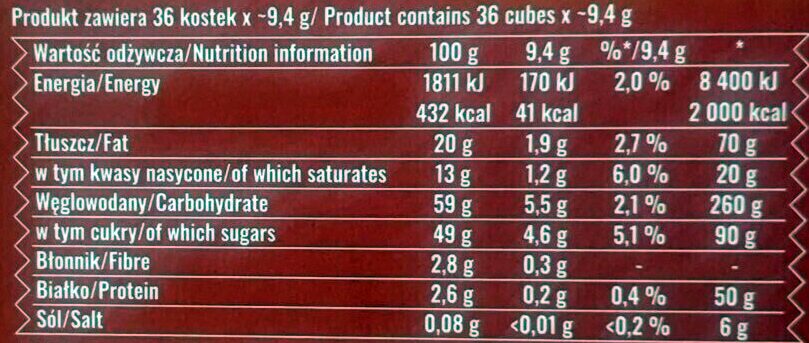Ptasie mleczko waniliowe z galaretką truskawkową - E. Wedel - 340 g
This product page is not complete. You can help to complete it by editing it and adding more data from the photos we have, or by taking more photos using the app for Android or iPhone/iPad. Thank you!
×
Barcode: 5901588400426 (EAN / EAN-13)
Quantity: 340 g
Brands: E. Wedel
Categories: Snacks, Sweet snacks, Cocoa and its products, Confectioneries, Chocolate candies, Chocolate-coated marshmallow treats
Labels, certifications, awards: Pure cocoa butter
Countries where sold: Poland
Matching with your preferences
Environment
Packaging
Transportation
Report a problem
Data sources
Product added on by kiliweb
Last edit of product page on by arc2.
Product page also edited by insectproductadd, yuka.sY2b0xO6T85zoF3NwEKvlhRMUN3BuhfJGUbnom-t2InfNoPEQu1ry9n6a6s.
If the data is incomplete or incorrect, you can complete or correct it by editing this page.











